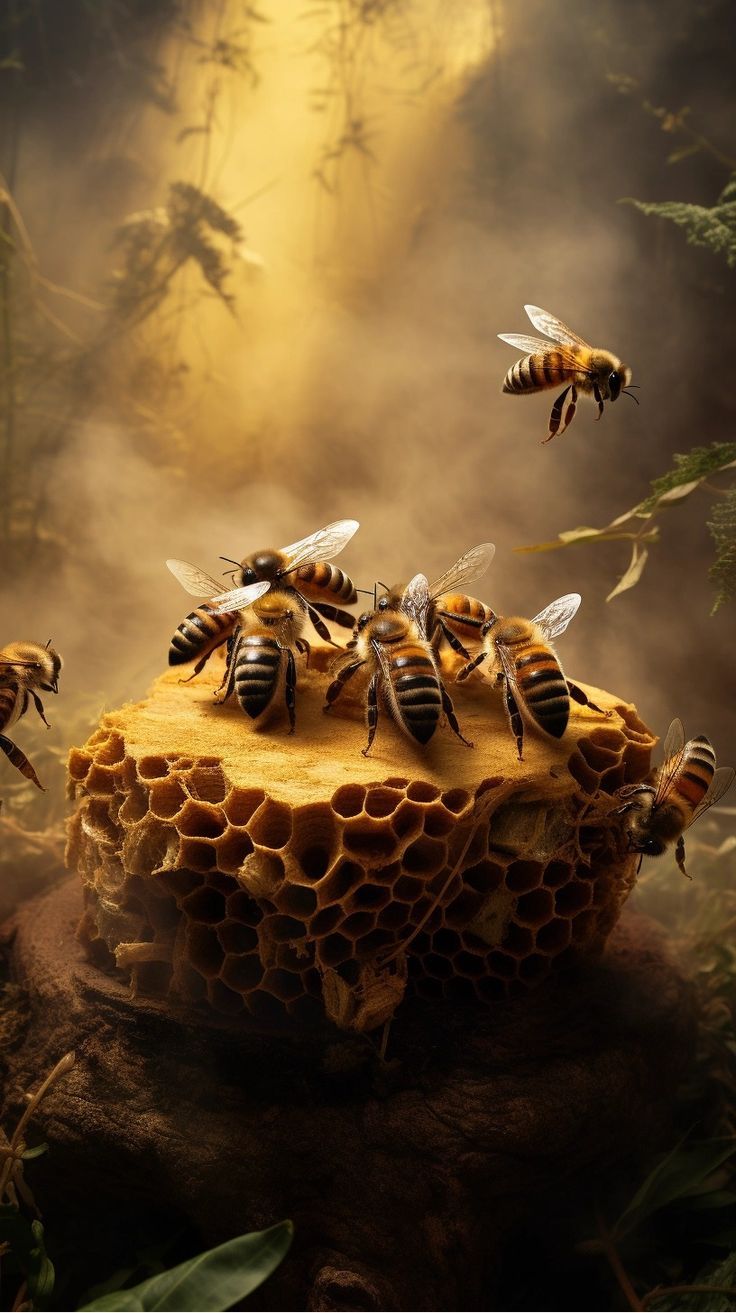World Bee Day: A Celebration of Bees and Their Impact on Our Lives
Introduction
World Bee Day, celebrated every year on May 20th, is a special occasion dedicated to raising awareness about the importance of bees and other pollinators in sustaining ecosystems, biodiversity, and food security worldwide. Bees play an integral role in pollinating plants, which in turn provide essential resources for both humans and wildlife. Despite their importance, bees face numerous threats, including habitat loss, pesticide use, and climate change. World Bee Day aims to educate the public, promote bee conservation, and ensure that future generations can continue to benefit from their invaluable services.
The celebration of World Bee Day serves as a reminder that the health of our planet is intricately linked to the health of its pollinators. Without bees and other pollinators, many of the foods we take for granted would cease to exist. From fruits and vegetables to nuts and seeds, bees ensure that plants can reproduce and produce the food we need to survive. This day serves as an opportunity to reflect on the impact bees have on our daily lives and the vital role they play in maintaining the delicate balance of nature.
What is World Bee Day?
World Bee Day is a global observance recognized by the United Nations, celebrated on May 20th to honor the contributions of bees and other pollinators. The date was chosen because it marks the birthday of Anton Janša, a Slovenian apiarist who pioneered modern beekeeping techniques in the 18th century. The goal of this day is to raise awareness about the critical role bees play in maintaining biodiversity, promoting agricultural productivity, and supporting food security.
The day also aims to educate people about the many threats bees face and to inspire actions to protect and conserve these important insects. By highlighting the importance of bees, World Bee Day seeks to encourage governments, organizations, and individuals to take steps to preserve pollinator habitats, reduce pesticide use, and promote sustainable farming practices.
History of World Bee Day
The idea for World Bee Day was first proposed by Slovenia, a country with a long history of beekeeping, in 2014. Slovenia’s efforts to promote beekeeping and protect bees culminated in the country’s formal request to the United Nations to establish a global day of recognition for bees. After a series of discussions and support from other countries, the United Nations General Assembly officially declared May 20th, 2018, as World Bee Day.
The celebration of World Bee Day is a testament to the growing recognition of the importance of pollinators in maintaining food systems, ecosystems, and biodiversity. As bees and other pollinators face unprecedented challenges, this day provides an opportunity to renew efforts to safeguard their populations and promote practices that ensure their survival.
Facts About Bees and Their Role in Our Lives
- Bees Are Vital for Pollination: Bees are among the most effective pollinators of flowering plants. In fact, it is estimated that one-third of the food we eat relies on pollination, and bees are responsible for pollinating up to 75% of these plants.
- Bees Contribute to Biodiversity: By pollinating a wide variety of plants, bees help to preserve biodiversity. Many plants, including wildflowers, depend on bee pollination to reproduce and maintain healthy ecosystems.
- Bees Help Food Security: Without bees, we would lose many of the foods we rely on, such as fruits, vegetables, nuts, and seeds. Bees help increase agricultural yields and contribute to the production of healthy, nutritious food for humans and animals alike.
- There Are Over 20,000 Species of Bees: While honeybees are the most well-known, there are over 20,000 species of bees worldwide. These include bumblebees, carpenter bees, and solitary bees, all of which play crucial roles in pollination.
- Bees Are Dying at Alarming Rates: Bees face numerous threats, including habitat loss, pesticide exposure, disease, and climate change. In recent years, there has been a dramatic decline in bee populations, which has sparked concern for the future of food production and ecosystems.
Significance of World Bee Day
World Bee Day holds immense significance for our planet’s ecological health and food security. Here are a few reasons why the observance of this day is crucial:
- Promoting Bee Conservation: World Bee Day highlights the need to protect bees and other pollinators from the many threats they face. This day serves as a platform for raising awareness and promoting initiatives that conserve bee habitats and ensure their survival.
- Supporting Sustainable Agriculture: The celebration of World Bee Day encourages farmers, policymakers, and individuals to adopt sustainable agricultural practices that are less harmful to bees. Reducing pesticide use, planting pollinator-friendly crops, and protecting natural habitats are some ways to support bees.
- Protecting Global Food Security: Bees are essential for pollinating the crops that make up a significant portion of our diets. By emphasizing the importance of bees, World Bee Day raises awareness about the direct connection between bee health and global food security.
- Inspiring Action: World Bee Day is not only about raising awareness but also about inspiring people to take concrete actions. Whether it’s planting bee-friendly plants, supporting local beekeepers, or advocating for policies that protect pollinators, this day encourages individuals to contribute to bee conservation efforts.
- Fostering a Stronger Connection to Nature: World Bee Day provides an opportunity for individuals to reconnect with nature and appreciate the vital roles that insects like bees play in our ecosystems. It fosters a sense of responsibility and stewardship for the environment.
How to Observe World Bee Day
There are several ways to celebrate World Bee Day and contribute to the protection of bees:
- Plant Bee-Friendly Flowers: Create a welcoming environment for bees by planting a variety of nectar-rich flowers in your garden or on your balcony. Flowers like lavender, sunflowers, and daisies are great choices for attracting bees.
- Support Local Beekeepers: Purchase honey, beeswax products, and other bee-related goods from local beekeepers who practice sustainable and ethical beekeeping methods. Supporting small-scale, local beekeepers helps to ensure the health of bee populations.
- Reduce Pesticide Use: Avoid using harmful pesticides in your garden or lawn. Instead, opt for natural, eco-friendly alternatives to protect pollinators from toxic chemicals.
- Raise Awareness: Share information about bees and their importance on social media or within your community. Help spread the message about the threats bees face and the steps we can take to protect them.
- Advocate for Bee Conservation: Advocate for policies that support bee conservation, such as creating bee-friendly habitats, reducing pesticide use, and encouraging sustainable farming practices. Join organizations that work to protect pollinators and promote environmental sustainability.
Conclusion
World Bee Day serves as a powerful reminder of the vital role bees play in our ecosystems and food systems. By raising awareness about the importance of bees and their threats, this day encourages global action to protect pollinators and ensure the sustainability of our planet’s biodiversity and food security. Bees are not just essential to nature—they are essential to our survival. As we celebrate World Bee Day, let us recognize the value of bees and commit to creating a world where these incredible creatures can thrive.










